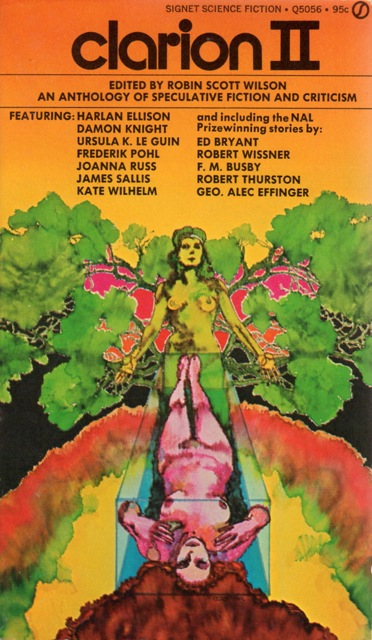Victoria Silverwolf
Vegetarian Werewolf
"In Entropy's Jaws" by Robert Silverberg -- A man experiences images of both the past and the future. That's a very simple description of a dense, complex story, beautifully written. The author at the peak of his talent, and the gem of the anthology.
"Reunion" by Arthur C. Clarke -- Brief, ironic tale of the aliens who are humanity's remote ancestors, and the small mistake they have come to correct. A bagatelle, but nicely done.
And that's the end of that anthology.
"Reunion" by Arthur C. Clarke -- Brief, ironic tale of the aliens who are humanity's remote ancestors, and the small mistake they have come to correct. A bagatelle, but nicely done.
And that's the end of that anthology.





